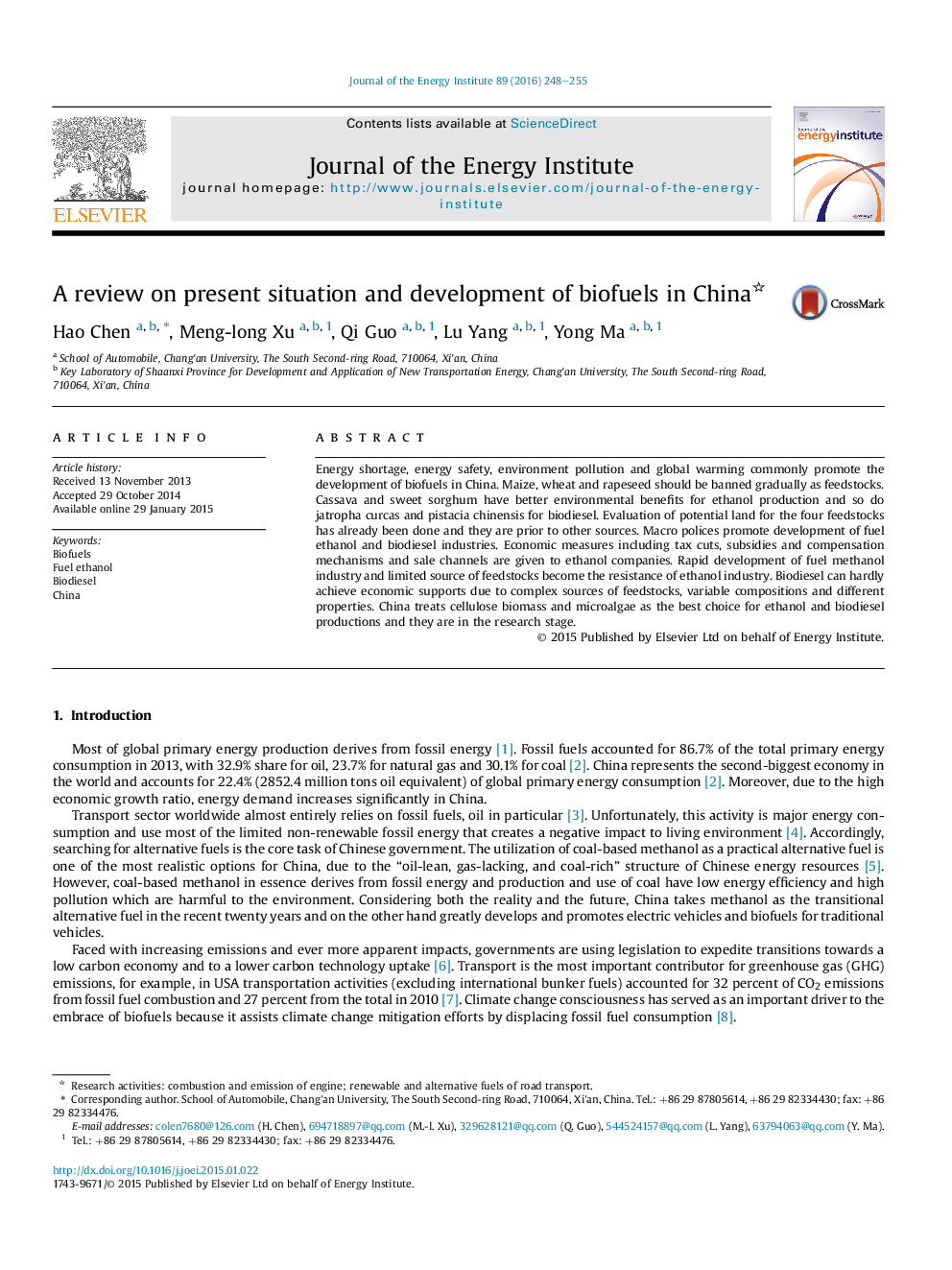| Article ID | Journal | Published Year | Pages | File Type |
|---|---|---|---|---|
| 1747650 | Journal of the Energy Institute | 2016 | 8 Pages |
Abstract
Energy shortage, energy safety, environment pollution and global warming commonly promote the development of biofuels in China. Maize, wheat and rapeseed should be banned gradually as feedstocks. Cassava and sweet sorghum have better environmental benefits for ethanol production and so do jatropha curcas and pistacia chinensis for biodiesel. Evaluation of potential land for the four feedstocks has already been done and they are prior to other sources. Macro polices promote development of fuel ethanol and biodiesel industries. Economic measures including tax cuts, subsidies and compensation mechanisms and sale channels are given to ethanol companies. Rapid development of fuel methanol industry and limited source of feedstocks become the resistance of ethanol industry. Biodiesel can hardly achieve economic supports due to complex sources of feedstocks, variable compositions and different properties. China treats cellulose biomass and microalgae as the best choice for ethanol and biodiesel productions and they are in the research stage.
Keywords
Related Topics
Physical Sciences and Engineering
Energy
Energy Engineering and Power Technology
Authors
Hao Chen, Meng-long Xu, Qi Guo, Lu Yang, Yong Ma,
